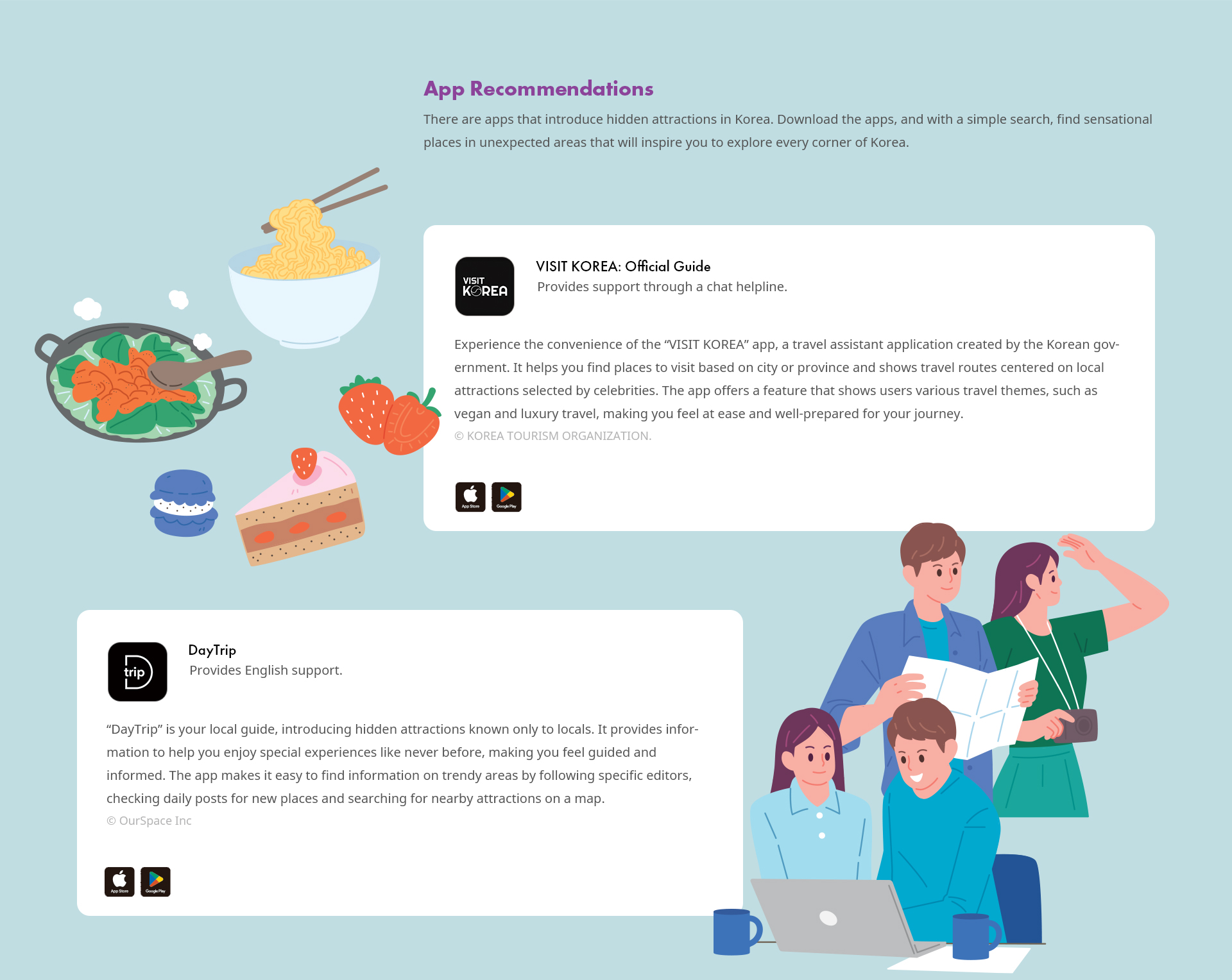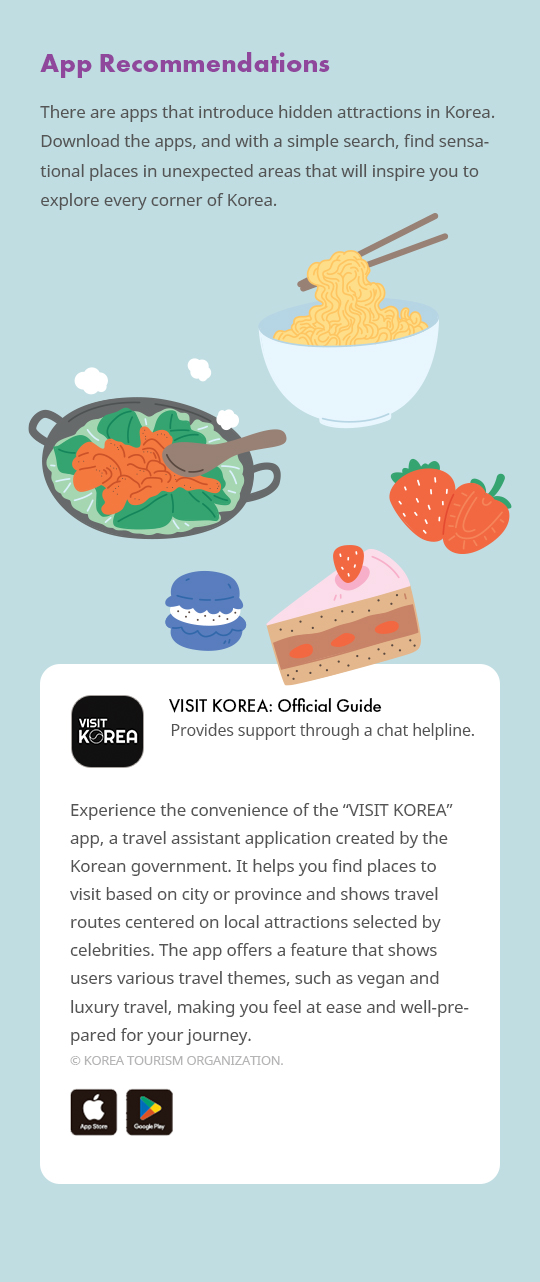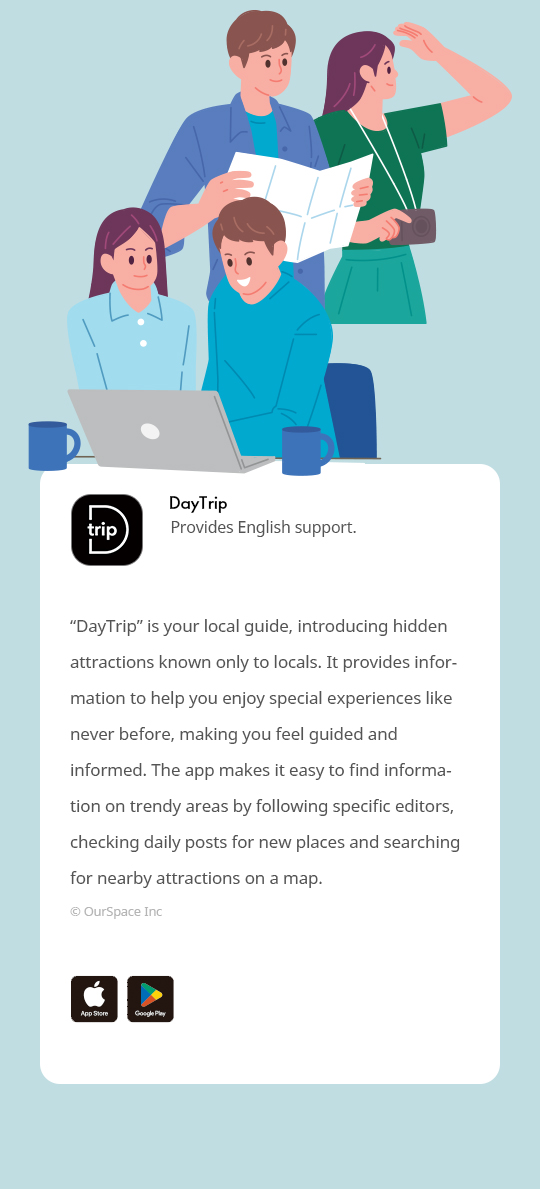What’s the first thing that comes to mind when you think of the word “local”? “Locals” refers to people or things belonging to a specific region. However, in Korea, the word is often used to refer to small towns or rural areas. Some people used to consider “local” to mean dull, but times have changed. Many Koreans, especially the younger generation, find local products with unique regional characteristics to be special, meaningful and something they want to experience.


Writer.
Sung Ji Yeon
Illustrator.
RYUGOON
Finding ‘Local Hip’
For Gen Z in Korea, “local” is a trend. The younger generation is enthusiastic about things only available in certain regions, such as unique products or festivals reflecting regional culture. Why? Young people like things that are different from what can be experienced in the city or daily life. Local regions have their own culture and, as such, satisfy the needs of Gen Z, who seek new things, products that suit them, and experiences that only a few can enjoy.
Gen Z began seeking local content, which led to the phrase “local hip,” meaning “local is hip.” Nowadays, the younger generation in Korea travels to lesser-known or unvisited regions to experience local hip. According to data released by the Korean government, one of the travel keywords for 2024 is “undiscovered places.” This reflects the drive of young people to seek more unique experiences when traveling to find hidden tourist destinations rather than ones that are known to the public.
The movement of Gen Z to explore local areas has breathed new life into small towns. Recently, there has been a shift from the bustling cities to these quaint regions, leading to a resurgence in their vibrancy. Small towns and rural areas are now bustling with activity as more and more people visit these areas for various reasons, such as commuting, tourism, recreation and work. This symbiotic relationship between these regions and Gen Z, where the regions act as creators of unique local content and Gen Z as consumers, is a testament to the power of supporting and exploring lesser-known areas.
How to Play Like a Local
Let’s find out how Gen Z explores small towns. First of all, there are often local festivals for people to enjoy. Some local festivals have become so popular that they trend on social media, such as the “Chuncheon Makguksu & Dakgalbi Festival” in Chuncheon (themed around representative regional foods), the “Haman Nakhwa Nori” in Haman-gun County (centered around traditional events) and the “Nonsan Strawberry Festival” in Nonsan (themed around local industries). The festivals have a positive response because they allow people to learn new things about the region and enjoy a completely different experience.
“Studycation” is a term that combines “study” and “vacation,” describing when students take credit exchange classes at a local university they have always wanted to attend. Classes are generally limited to one or two subjects over a month-long period. Students take classes in the morning or afternoon and spend their remaining time doing things they want to do, such as touring the surrounding area. Some schools open their dormitories to students taking credit exchange classes during vacation, making this a method of local travel that is becoming quite popular.
There are also experiences where fans of webtoons, web novels and dramas go on certain pilgrimage tours to visit locations and backgrounds used in their favorite content. Visitors can participate in numerous activities that allow them to experience the region like a local, such as brewing regional-based alcohol in a particular location or going on a themed trip to visit bakeries in a specific area.
Local travel will continue to develop further in the future. Every region has a specific theme suitable for local travel. Korea is conducting a project called “Local 100” to help people discover the charm of local culture. Some magazines only focus on local life, and some platforms only sell local products. There has also been a significant increase in stores and foods named after specific regions.
Korea is focusing on the hidden values of regions across the country by finding ways to help people discover content that allows them to enjoy the culture like a local. So, if you want to learn about Korea’s unique charm, pay attention to the places where Koreans walk. You’ll be able to experience a more diverse Korea than the one you know.



